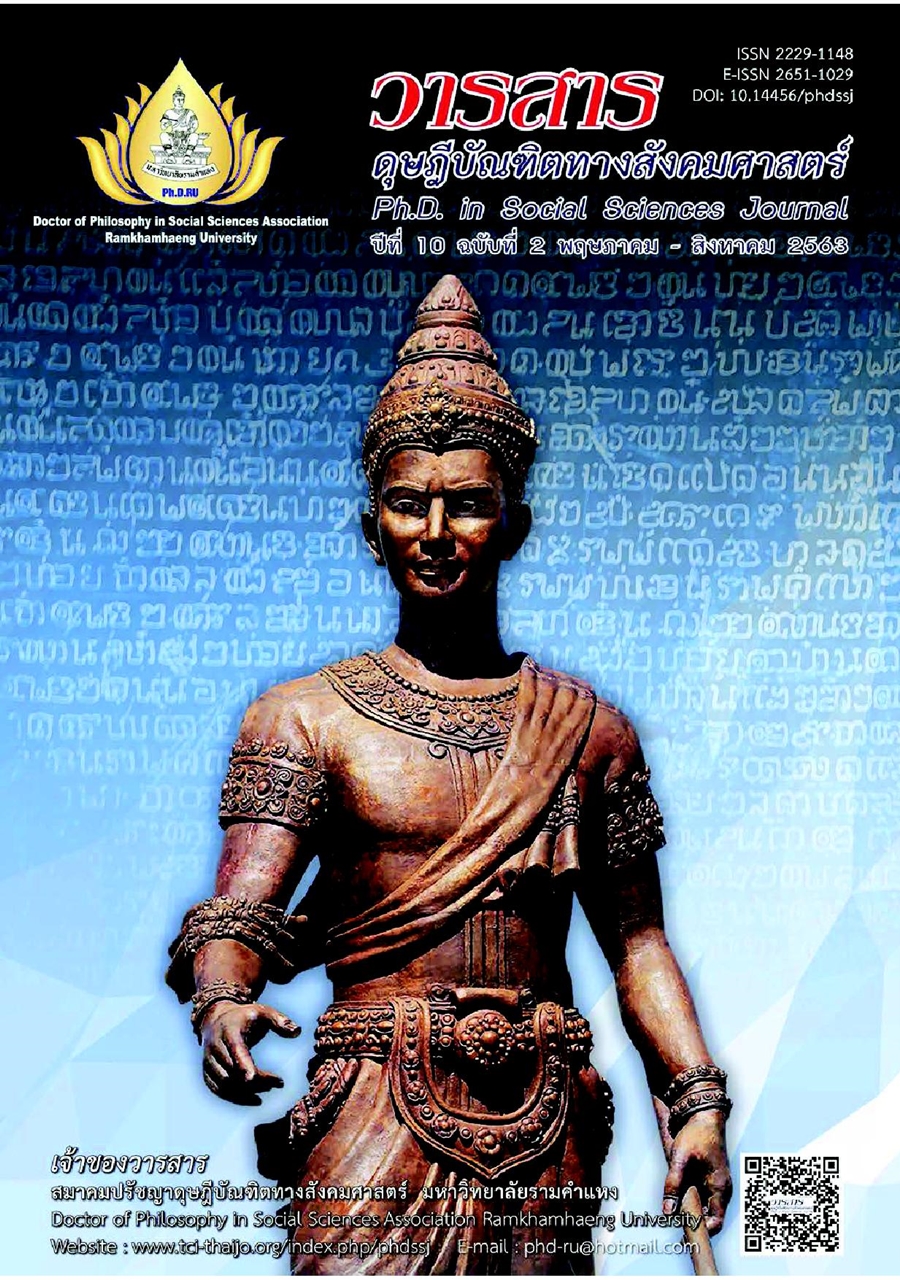The Causal Relationship Analysis of Organizational Culture, Leadership and Knowledge Management Affecting the Learning Organization in Basic Education Schools in the Upper Southern Region of Thailand
Main Article Content
Abstract
This research aimed to study the factor of organizational culture, leadership, knowledge management and learning organization to develop the causal relationship model of organizational culture, leadership and knowledge management affecting the learning organization in Basic Education Schools in the upper southern region of Thailand. This quantitative research has the sample size which consisted of 570 schools in Basic Education Schools in the upper southern region of Thailand. The instruments for data collection were 5-level rating scale questionnaire. The statistic for data analysis was the average, correlational coefficients and Chi-square.
Research results were as follows: the average score of all factors was at a high level of perception while the fit index of our hypothesis model, CFI, GFI, Relative-fit and RMSEA were .998, .969, 1.146 and 0.016 respectively. The interesting finding showed the high level of the leadership factor directly affected to the organizational culture factor and the learning organization factor was direct influence from the organizational culture.
Article Details
Academic articles, research articles, and book reviews in the Ph.D. in Social Sciences Journal are author’s opinions, and not the publisher’s, and is not the responsibility of the Ph.D. in Social Sciences Journal Philosophy Association, Ramkhamhaeng University. (In the case that research is done on human, the researcher has to be trained in Ethics for Doing Research on Human Training and has to produce the evidence of the training).
References
Armstrong, M. (2006). Performance management: Key strategies and practical guidelines (3rd ed.). London: Kogan Page.
Bass, B. M. (1985). Leadership and performance. The Free Press.
Bass, B. M., & Avolio, B.J. (2006). Multifactor leadership questionnaire: Sampler set, manual, forms, and scoring key (3rd ed.). Mind Garden.
Bennis, W., Nanus, B. (1985). Leaders: The strategies for taking charge. Harper and Row.
Chaiwong, S. (2017). 20 years southern border education plan. Retrieved from http://www.moe.go.th/moe/th/news/detail.php?NewsID=48087&Key=news_Surachet [In Thai]
Chantarasombat, C. (2007). Developing a knowledge management model for self-reliant communities. Mahasarakham University. [In Thai]
Daff, R. L. (1999). Leadership theory and practice. Tax Dryden.
Dararuang, K. (2016). Perceptions of individual – Level of organizational culture and knowledge management influencing on innovations within KTIS Group. Journal of the Association of Researchers, 21(2), 58-68. [In Thai]
French, W. L., Bell, C. H., & Zawacki, R. A. (2005). Organization development and transformation: Managing effective change. Mc-Graw Hill.
Hoy, W. K., & Miskel, C. G. (2001). Educational administration: Theory, research, and practice. McGraw-Hill.
Keawpairee, W. (2008). Human resource development in organizations. Dhonburi Rajabhat University. [In Thai]
Keawying, K. (2007). Human resource management (5th ed.). Se-education. [In Thai]
Kiatkunphong, O. (2016). Relationships among constructive organizational cultures, transformational leadership, and knowledge management in community hospital, Suratthani Province. Journal of The Police Nurses, 8(2), 129-137. [In Thai]
Klinngam, S. (2008). Developing a knowledge management model for Rajabhat Universities. Ramkhamhaeng University. [In Thai]
Marquardt, M. J. (1996). Building the learning organization: A systems approach to quantum improvement and global success. McGraw-Hill.
Marquardt, M. J. (2002). Building the learning organization: A systems approach to quantum improvement and global success. McGraw-Hill.
Marquardt, M., & Reynolds, A. (1994). The global learning organization. Irwin.
Ministry of Culture. (2016). Culture: Way of life and wisdom. Rungsilp. [In Thai]
Na Nakorn, S. (2019). The comparative study of knowledge management styles and organizational culture of private organizations. Suan Sunandha Rajabhat University, Faculty of Business Administration. [In Thai]
Nukool, W. (2017). Leadership, knowledge management, and organizational culture affecting learning organization of basic educational school in Phichit Primary Educational Service Area Office. Humanities and Social Sciences Journal of Graduate School, Pibulsongkram Rajabhat University, 11(1), 202-216. [In Thai]
Probst, G., Raub, S., & Romhardt, K. (2000). Managing knowledge: Building blocks for success. John Willey & Sons.
Razik, T. A., & Swanson, A. D. (2001). Fundamental concepts of educational leadership (2nd ed.). Prentice Hall.
Rungkeaw, P. (2013). The development of learning organization model of Bunditpatanasilpa Institute Ministry of Culture. Retrieved from https://so05.tci-thaijo.org/index.php/tgt/article/download/10568/9567 [In Thai]
Saopayon, S. (2004). Educational management principles: Theory and practice. Book Point. [In Thai]
Senge, P. M. (2006). The fifth disciplines: The art and practice of learning organization (2nd ed.). Century Business.
Tawonchat, A. (2012). Factors affecting the knowledge management of personnel in Nakhon Sawan Rajabhat University. Nakhon Sawan Rajabhat University, Graduate Studies Journal, 7(20), 123-136. [In Thai]
Udom, J. (2017). Learning organization strategy development: Rajabhat University, Rattanakosin Group. Journal of Pacific Institute of Management Science, 3(2), 204-212. [In Thai]
Wijarn, B. (2006). Knowledge management to practical intelligence. Expernetbooks. [In Thai]


